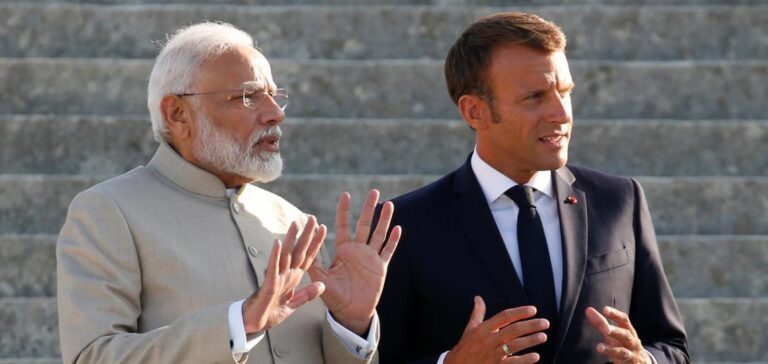Indian Prime Minister Narendra Modi’s visit to France marks a strategic step for bilateral cooperation in technological and energy sectors. Following a summit on artificial intelligence and a meeting with business leaders in Paris, Modi will join Emmanuel Macron in Marseille to further discussions on infrastructure and energy.
Energy projects at the heart of discussions
Talks will focus on the Imec (India-Middle East-Europe Economic Corridor) logistics corridor project, which aims to improve trade between India and Europe through the Middle East. Marseille is expected to play a key role as both an entry and exit point. The port and logistics sector should see significant announcements, particularly involving CMA-CGM, a major player in maritime transport.
Energy is also a key topic on the agenda. The two leaders will visit the Iter experimental nuclear fusion reactor site under construction in Cadarache. This international project, involving India, the European Union, the United States, China, South Korea, Japan, and Russia, aims to develop a technology for energy production that is less dependent on fossil fuels.
A new strategic axis in civil nuclear energy
Beyond Iter, Paris and New Delhi seek to deepen their partnership in civil nuclear energy. A new cooperation axis on small modular reactors (SMRs) will be launched during this visit. These compact reactors, considered an alternative to large nuclear power plants, are attracting interest from multiple countries due to their flexibility and potential integration into diverse energy networks.
This initiative aligns with India’s strategy to diversify its energy mix and France’s ambition to maintain its leadership in civil nuclear energy. However, uncertainties remain regarding implementation timelines and financing conditions for these future projects.
Economic prospects and geopolitical challenges
Franco-Indian energy cooperation extends beyond infrastructure and fits into a broader framework of strengthening bilateral economic relations. With a growing trade volume in recent years, India has become a strategic partner for France, particularly in the defense, infrastructure, and high-tech sectors.
Meanwhile, Narendra Modi will travel to the United States to meet President Donald Trump, highlighting India’s central role in current geopolitical dynamics. By strengthening its energy ties with India, France seeks to solidify its influence in a rapidly evolving market.






















